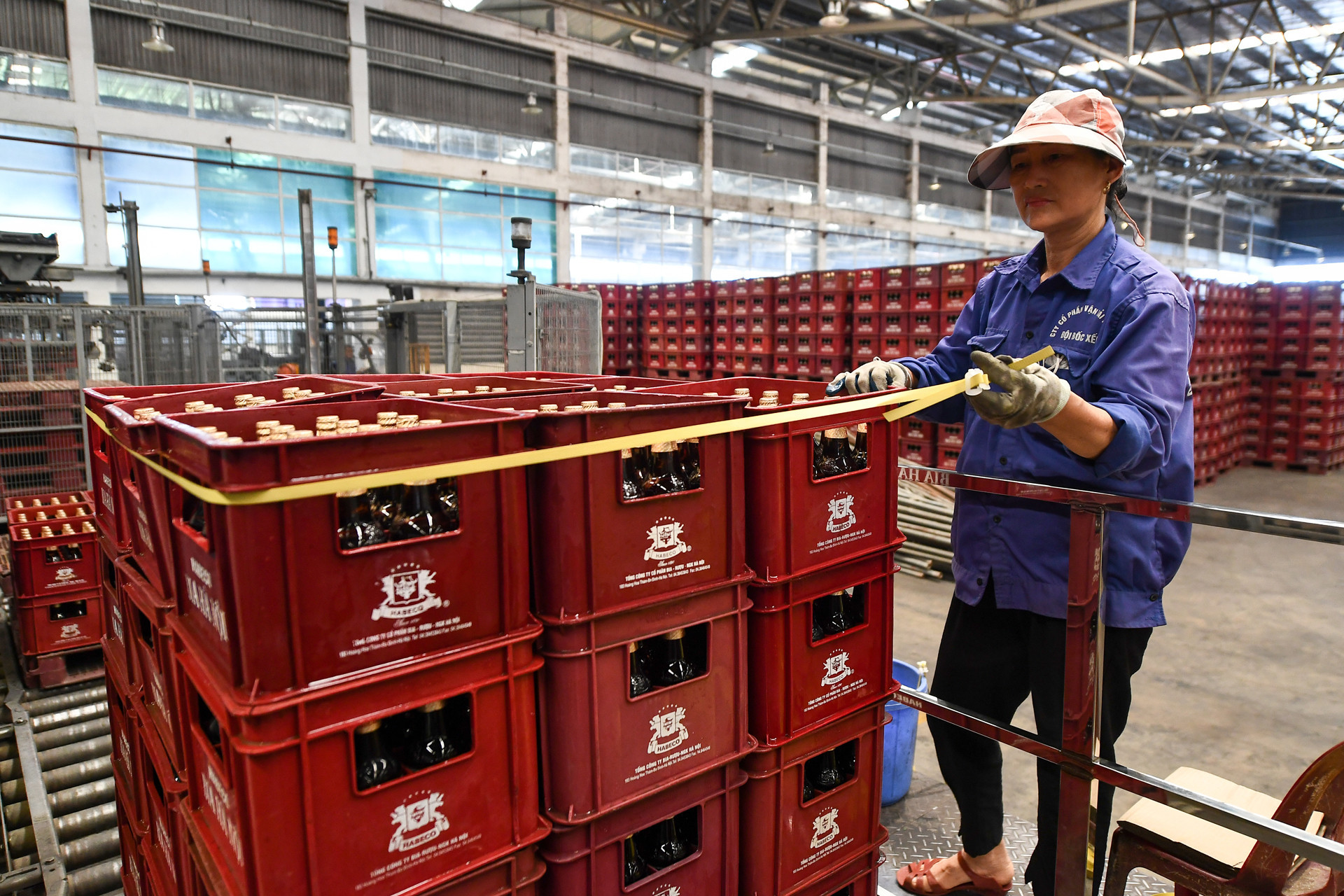The investment policy approval procedure is a redundant administrative requirement lacking clear regulatory objectives, misaligned with market principles, and a violation of the right to business freedom. According to economic expert Dr. Nguyen Dinh Cung, this procedure has created numerous negative impacts on Vietnam’s business environment and must be abolished urgently.
Speaking with VietNamNet about the Party’s Resolution 68 on private economic development, Dr. Cung emphasized that systemic reform is essential to unlock the full potential of Vietnam’s business community.
Vietnam needs 200,000 new businesses annually

Resolution 68 sets a target of having two million active businesses by 2030. However, despite Resolution 10 in 2017 aiming for one million enterprises by 2020 and 1.5 million thereafter, Vietnam has only reached 940,000 to date. Achieving the new target means creating one million new businesses within the next five years.
"To reach that number, we need an average of 200,000 new businesses per year. In practice, this would require an annual growth rate of 20% in the first year, gradually tapering down to 10% by 2030. But currently, the business growth rate is only around 3–4%, with some years even showing negative growth," Dr. Cung explained.
He stressed that the first step toward achieving this target is to thoroughly reform the business registration process. General Secretary To Lam has stated that the business environment must be conducive to all individuals and enterprises, ensuring both convenience and legal safety for investment and commercial activities.
Dr. Cung proposed assigning a specific ministry the responsibility for achieving this goal, with performance evaluated monthly, quarterly, semi-annually, and annually. "That ministry must monitor not only new registrations but also closures – how many, whether the trend is rising or falling, and why – then act accordingly."
He added that a comprehensive solution package is needed to improve the business environment and support enterprises with access to capital, land, technology, and markets.
A proposal for a special task force

Resolution 68 also mandates that by 2025, Vietnam must cut administrative procedure processing times, compliance costs, and business conditions by at least 30%. Dr. Cung pointed out the challenge: "Who will review and eliminate these burdens? Can we really expect ministries to do this thoroughly themselves?"
He emphasized that reviewing existing business conditions is crucial. Without an independent, empowered task force, true reform may not be achieved.
Dr. Cung proposed that the Prime Minister establish a special task force comprising independent experts in legal and institutional reform, along with business representatives. This group should report directly to the Prime Minister and be tasked with completing the review of all business-related regulations by 2025.
"It’s essential to define clearly what '30%' means – 30% of how many existing conditions or costs?" he emphasized.
A clear boundary between economic and criminal liability

Another point Dr. Cung strongly supports is the clear separation between civil-administrative and criminal liabilities in business. "This principle – not criminalizing economic and civil activities – is clearly addressed in the new resolution, with concrete guidelines for implementation."
Businesses in Vietnam have long faced legal risks, not just administrative penalties but criminal charges, even when acting in good faith. Vietnam’s legal system often requires businesses to operate “according to regulations,” limiting innovation. Overlapping and contradictory laws across various legal documents worsen the issue.
Dr. Cung stated that this climate of legal uncertainty has deterred many entrepreneurs from scaling up, even those with substantial assets. "But the new resolution provides hope. It affirms that economic remedies should be prioritized over criminal prosecution."
He also highlighted the importance of distinguishing between personal and corporate liability. If a director breaks the law, only their personal assets – not the entire company – should be subject to seizure. This clarity will reduce fear and improve trust among business owners.
A legal system full of constraints
When asked why entrepreneurs should be worried if they follow the law, Dr. Cung replied, "Because the legal system is overly complex, unclear, inconsistent, and sometimes contradictory. Even strict compliance can lead to unintentional violations."
Quoting National Assembly Deputy Mai Thi Phuong Hoa, he noted: “Many people today are afraid of making mistakes. Even after completing a task, they don’t know if they did it right or wrong.”
He added that the legal framework reflects a “management-heavy” mindset, where regulations tend to prohibit what authorities cannot supervise. This approach restricts enterprise freedom to only what is explicitly permitted.
Private enterprises are often blocked from pursuing more efficient or innovative solutions simply because the law hasn’t anticipated them – or because the authorities haven’t approved them.
Such restrictions hinder innovation, discourage R&D investment, and limit technological adoption. Furthermore, favoritism and cronyism continue to erode business ethics and fair resource allocation.
The harmful effects of investment policy approval

The National Assembly's Economic and Financial Committee has proposed scrapping certain restrictive regulations, including the investment policy approval process and the investment registration certificate. These procedures are part of Vietnam’s Investment Law.
Dr. Cung described the policy approval process as overly invasive: "Authorities currently approve the objectives, location, scale, timeline, investor, and implementation method for each investment project – decisions that should be made by the market, not the state."
He outlined the harmful effects of this approach: wasted time and money, frequent adjustments to approved projects, heightened risks for investors, and diminished innovation.
Even worse, startups and small businesses are often ineligible to apply because they are required to submit financial reports for the past two years – a condition they cannot meet.
This process, rooted in a bureaucratic, permission-based mindset, lacks clear regulatory value and creates institutional bottlenecks that hinder capital mobilization and resource allocation.
"Does investment policy approval replace environmental assessment, construction permits, or land-use procedures? No. It does nothing that other necessary approvals don't already handle," he said.
In Dr. Cung’s view, the investment policy approval requirement serves no practical purpose. It is an outdated, non-transparent administrative obstacle that stifles entrepreneurship and undermines the market economy. For Vietnam to foster innovation and achieve sustainable economic growth, this procedure must be eliminated.
Tu Giang - Lan Anh